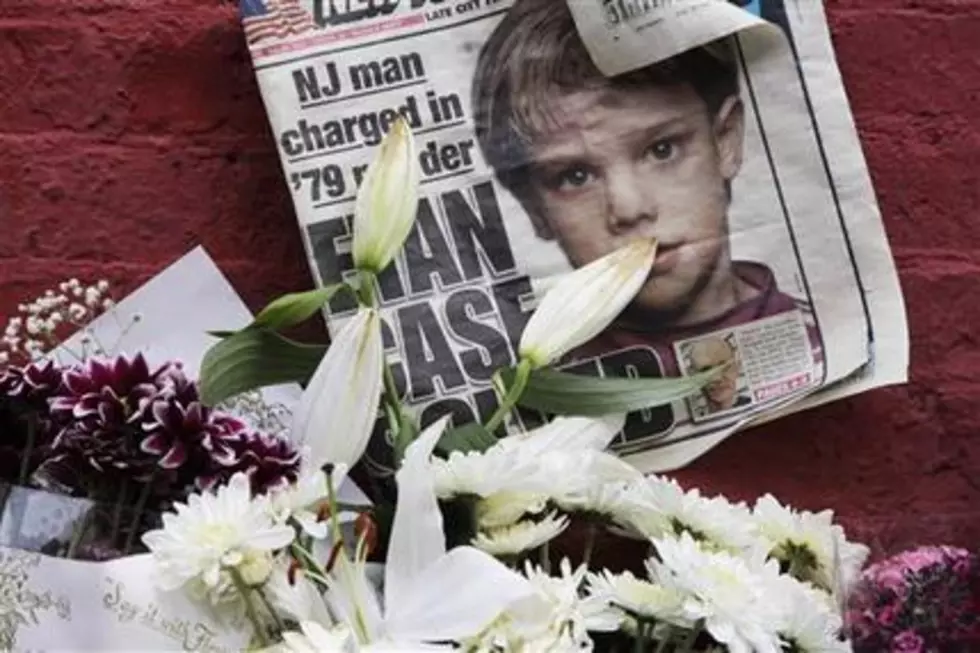
Trial of NJ man begins, 35 years after Etan Patz disappearance
NEW YORK (AP) -- A defense attorney for the mentally ill New Jersey man accused of killing 6-year-old Etan Patz says Pedro Hernandez doesn't have the mental wherewithal to be the cunning criminal described by prosecutors.
Attorney Harvey Fishbein said in opening statements Friday that Hernandez "cannot distinguish between what is real and what is not." Fishbein urged jurors to focus on what he called a lack of evidence against his client.
Hernandez has pleaded not guilty.
Etan vanished in May 1979. He became one of the first missing children pictured on milk cartons.
In 2012, Hernandez gave a videotaped confession. Prosecutors say also he made incriminating remarks to friends and relatives in the 1980s.
His lawyers call that confession false, and point to a convicted Pennsylvania child molester who was suspected for years in Etan's disappearance.
Little Etan Patz was a "tiny man with a big heart" who couldn't wait to walk to his school bus stop alone, and "his beautiful little life" was snuffed out by a neighborhood shop worker,Hernandez, on the very first day he achieved that childhood freedom in 1979, Manhattan Assistant District Attorney Joan Illuzzi-Orbon said.
"You will see and hear his chilling confession," she told jurors. "What you will see is someone who very keenly controls the information that he puts out."
The defense of Hernandez, 54, of Maple Shade, New Jersey, depends on convincing jurors his confession was false, and suggesting that the real killer may be a convicted Pennsylvania child molester who had been a prime suspect for years.
Etan was last seen alive walking to the bus stop. His body has never been found, and memories can falter with the passage of time. But the prosecutor told jurors they will hear details that made people suspect Hernandez even before police questioned him:
- Hernandez's brother-in-law Jose Lopez learned that Hernandez, without naming the boy, had told his prayer group in the 1980s that he had killed a child.
- Hernandez told one of those religious acquaintances that he had sexually abused a boy before killing him.
- And Hernandez's ex-wife, years ago, found a cut-out photo of Etan in a little box where the man stored keepsakes. When she questioned him about it, he got angry at her for going through his things.
Lopez tried to alert authorities for years, the prosecutor said, calling America's Most Wanted, the National Center for Missing and Exploited Children, and the NYPD's missing-persons squad. No one got back to him until 2012, when he called again after seeing news of a failed effort to dig for clues in a store basement in the neighborhood.
Etan's disappearance ushered in a new protectiveness into American parenting. He became one of the first missing children featured on milk cartons. His parents advocated for legislation that created a nationwide law-enforcement framework to address such cases. The anniversary of his disappearance is now National Missing Children's Day.
The trial, presided over by state Supreme Court Justice Maxwell Wiley, is expected to last up to three months and feature witnesses including Etan's mother, psychologists, an inmate informant who knows Hernandez, and possibly other informants testifying against the earlier suspect.
The seven-man, five-woman jury was chosen from a pool of about 700 people. Some openly wondered about bringing a case to trial after so many years.
The prosecutor seemed to acknowledge this by evoking a scene from "a Stone Age where the internet didn't exist," and where even in New York City, children "played outside until their mothers called them home at dinner time."
"A time when hippies, not hipsters, graced the streets of downtown Manhattan. This is the moment we're about to step back into, and into a crime that changed the face of this city forever, a cautionary tale and a defining moment, a loss of innocence," Illuzzi-Orbon said.
In the videotaped, hours-long confessions, Hernandez says he offered Etan a soda to entice him into the basement of the Manhattan convenience store where Hernandez worked. Then, Hernandez said, he choked the boy and dumped him, still alive, in a box with some curbside trash.
"Something just took over me, and I was just choking him," Hernandez told investigators at one point. "He just kind of stood there, and I just felt bad, what I did."
Defense lawyers say the confession is fiction, dreamed up by a man long medicated for mental illness and with a history of hallucinations. They say Hernandez was subjected to more than six hours of police questioning before being read his rights.
After confessing, Hernandez told a defense psychologist his memory of the killing "feels like a dream" and he wasn't sure it had really happened.
Hernandez's lawyers also plan to point to longtime suspect Jose Ramos, a Pennsylvania prisoner who dated a woman who sometimes cared for Etan. Ramos denied killing Etan, but authorities said he made incriminating statements when questioned in the 1980s, and a civil court found him liable for Etan's death in 2004 after he stopped cooperating.
Both Hernandez and Etan's father, Stan Patz, sat stock-still as the prosecutor spoke.
© 2015 The Associated Press. All rights reserved. This material may not be published, broadcast, rewritten or redistributed. Learn more about our Privacy Policy and Terms of Use.
More From New Jersey 101.5 FM









